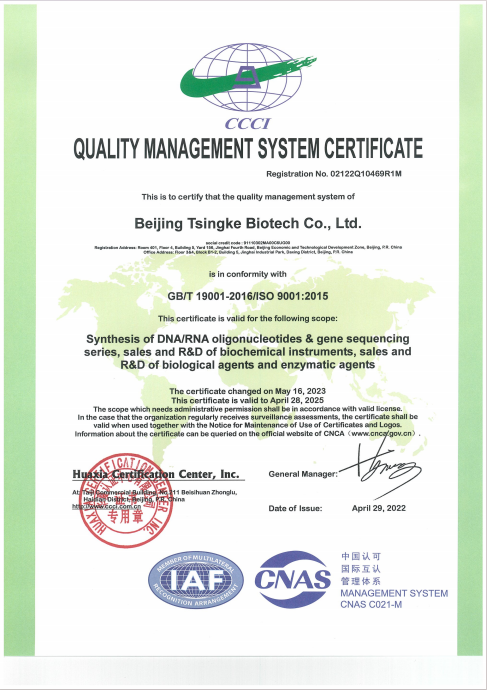Turnaround times for gene synthesis might vary greatly depending on the length and complexity of the gene. The timely delivery of synthesized genes might make or break your endeavor.Understanding how your gene's length and complexity affect turnaround times is critical for efficient planning and execution.Tsingke offers detailed insights on predicted timescales for various gene lengths, allowing you to remain ahead of the curve and fulfill your research objectives effectively.
Navigating the Timeline Maze: Gene Length and Synthesis Speed
When it comes to DNA gene synthesis, the length of the gene plays a significant role in determining how quickly you can expect results. Here’s a breakdown of our turnaround times based on gene length:
l Under 1.5 kb: For shorter genes, our standard turnaround time is 5 to 7 business days. This rapid processing is ideal for straightforward projects where quick results are essential.
l 1.5 kb to 3.5 kb: Mid-length genes typically require between 9 to 12 business days. This timeframe accounts for the additional steps involved in handling and verifying these sequences.
l 3.5 kb to 5 kb: For genes in this range, expect a turnaround time of 12 to 15 business days. The increased complexity can impact the duration of the synthesis process.
l 5 kb to 7 kb: Longer genes take between 15 to 18 business days to synthesize. The extended period reflects the detailed work required to ensure high accuracy.
l Over 7 kb: Genes exceeding 7 kb can take 20 to 25 business days. Complex and lengthy sequences necessitate thorough quality checks and detailed assembly.
Unraveling the Factors: What Affects Your Turnaround Time?
Several factors affect the turnaround time for DNA gene synthesis:
l Complexity of the Sequence: Genes with high GC content or intricate secondary structures can take longer to synthesize due to the increased difficulty in maintaining accuracy and stability.
l Sequence Optimization: Tsingke employs advanced codon optimization and GC content adjustment to enhance gene expression. These optimizations might add a few days to the overall timeline but ensure superior results.
l Quality Control: Rigorous quality control methods, including Sanger sequencing and NGS, are integral to our process. Ensuring 100% accuracy can extend the turnaround time, but it's crucial for reliable outcomes.
Streamline Your Research: Tips for Efficient Project Management
To streamline your project and meet deadlines effectively:
l Plan Ahead: Consider the length and complexity of your gene when estimating delivery times. Allow for extra time if you're working with long or complex sequences.
l Optimize Sequences Early: Submit optimized sequences and specify any particular requirements upfront to avoid delays.
l Communicate Clearly: Provide complete and accurate information about your project needs to avoid potential setbacks.
Conclusion
Understanding the expected turnaround times for DNA gene synthesis is essential for managing your research projects effectively. At Tsingke, we strive to provide accurate and timely synthesis services, ensuring your genetic sequences are delivered with the highest quality. By considering gene length, complexity, and optimization needs, you can better plan and execute your research endeavors. For more details or to get started on your next project, contact us today and let Tsingke be your partner in genetic innovation.





